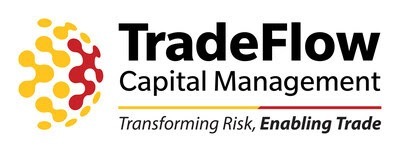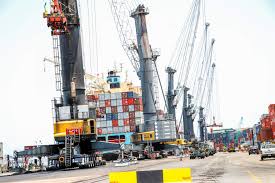“Proof of Work” model simplifies carbon offsets process though focus on relevant core factors
With recent controversies in the carbon markets marring the true potential of genuine carbon offsets for doing good, TradeFlow Capital Management (TradeFlow) and H2O Venture Partners (H2O) are pleased to share their pioneering collaboration that abates carbon emissions whilst achieving UN SDGs.
Rather than through the conventional model of purchasing verified carbon offsets on the open market, TradeFlow worked directly with H2O, utilising established methodology and material evidence of carbon abatement. Simplicity and a focus on core relevant factors of the carbon-offset process avoids expensive onboarding and management fees, allowing fees to be more directly re-invested into scaling up offset operations.
FarmFresh, a school-feeding project in Kigali, Rwanda, provides an example of this model, where 182,294 kg of CO2 equivalent emissions were averted from less firewood burned for the period September 2022 to February 2023. Instead of each school cooking their own beans (the main source of daily protein to school children in Rwanda) over open fires and with long cooking times, FarmFresh prepares the beans in-factory using highly energy-efficient modern cooking facilities and packs them in lightweight recyclable laminate pouches (rather than large tins previously) for ease of distribution. This results in less food waste and a 97% reduction in the energy used per kg of cooked beans. Moreover, the process is regulated to the highest food safety standards resulting in improved quality and nutritional standards than achieved previously.
The success of this model aligning affordability, nutritional quality and environmental sustainability has led to an agreement with the City of Kigali and the Heads of Schools Organisation Rwanda to enrol more schools in Kigali to scale up production to 120 metric tons (mt) of cooked beans per month, up from the ~20 mt/month at present. This will equate to 50,000 school lunches per day, and lead to even more carbon abated as a result.
Says Paul Coleman: “This is a great example of an informal, voluntary scheme built on trust between the payer and the project, with a pragmatic, robust methodology that doesn’t require external consultants working out the savings to the nth decimal point. Rather, we have a transparent methodology that estimates the main carbon savings and links them to a company performance metric (in this case, kilograms of beans sold) that can be audited by local firms. Our simple, transparent and affordable model avoids the high cost of Certification agencies, which involves certified auditors flown in every year.
The carbon credits from TradeFlow are a very exciting development therefore. The carbon credit payments will be used to help collect data from the schools we are working with in Kigali, and in collaboration with our local partners, to learn lessons to inform further scaling and a strategy for national coverage.”
Says Dr Tom James, CEO and CIO of TradeFlow : “We believe businesses can make the right choices to create positive impact, and are pleased to support the pioneering work of partners like H2O at ground level to increase their scale of positive impact. Empowered by our Digitalised model of trade to narrow the SME trade finance gap, we’re especially glad to be able to enable a number of UN SDGs for the countries we operate in to reduce poverty and improve the quality of life.”
Source: PRNewswire/TradeFlow







